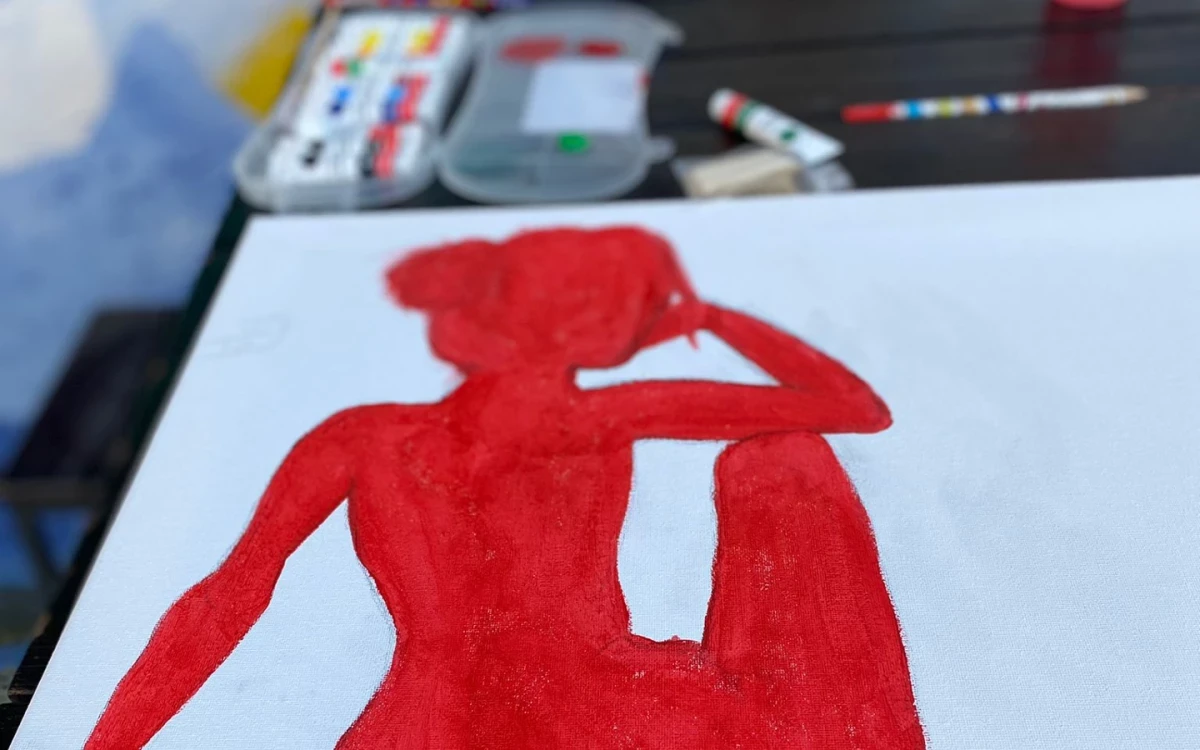Emina and Marija Empowered Each Other to Escape Difficult Life Situations
Published: Oct 27, 2023 Reading time: 5 minutes Share: Share an article"We hangout, make jewellery and soap. I would like the workshops to be more frequent and to continue because they help me to relax mentally—I don't think about all the obligations that await me when I return home. I spend time with women who understand me. I have friends from school, relatives, but when I hug Marija, my heart is full because she understands what I went through and am currently going through,” Emina says.

Emina was in the safe house four times. The lack of a stable source of income, and the fact that the Law on Social Protection of the Herzegovina-Neretva Canton (HNK) does not recognise victims of violence as a social category. Recognition, amongst other things, would enable survivors to be trained in life and work skills, and receive financial assistance and social and professional work services. Instead, Emina was forced to return with her children to live with her husband.
Marija, whom Emina met through the workshops, adds that in addition to "formal" socialising, what is more important is the one that continues in their homes. Wherever it is, socialising is accompanied by coffee, biscuits, and beads for jewellery.
She says that COVID-19, which led to the death of her mother, had a negative impact on her, and many of her friends.
"People stopped going out, socialising, shaking hands... the state of anxiety and anti-social habits we adopted during that period became normal to us. Three years after the start of the pandemic, hardly anyone opens the door to me," Marija tells.
Although they only met recently, Marija and Emina shared more than coffee, and with it happiness and sadness. They have shared more with each other than they have with relatives and friends they have known for a long time.
Emina and Marija were brought together thanks to the collaborative efforts of the "Women of BiH" Association and the Citizens' Initiative in Mostar. This transformative opportunity has been afforded to women who have confronted domestic violence, single mothers, those with limited financial means, and senior women.
Precisely because of the stigmatisation of socially vulnerable women in Mostar, the Association "Žena BiH", with its partner Citizens' Initiative of Mostar, launched the project "Active, Not Passive, Social Inclusion of Women". The goal is to increase the motivation of the people who need support to participate in the civic, cultural and economic life of Mostar. The Government of the United Kingdom recognized this and provided financial support for the realisation of the project through the Mostar Project—Spaces to Activate and Rejuvenate.
During the conversation, Hamza, Emina's son, approaches and shows a bracelet with white beads and a pendant in the shape of the Eiffel Tower.
Hamza, adds that the training, they all went through before making jewellery, helped them learn how to form the shapes of earrings, bracelets, broaches, etc., but also to learn which colours can be combined together. He claims that making jewellery is much more interesting than soap because it allows him to express himself creatively.
"My wish is to sell this jewellery together with my mother online, on the street and in the Old Town. Mom and I will sell, and my brother will take care of the cash register because he loves math," Hamza says.
While Hamza tells his plans, Emina and Marija nod their heads. They agree that it would be a good source of income, especially in the summer season when there are more tourists in Mostar.
"I would like our workshops to become at least one brand. In addition to the fairs and bazaars that the Association will take us to, I think we have the strength to start something of our own and expand the range of products to knitting, bags sewn from old clothes, crocheted products, etc.,” says Emina.
If you or someone you know is in immediate danger in Bosnia and Herzegovina, call the police emergency number at 122 or the number of the competent police department. Psychological support, information on the protection of your rights, advice on how to help women and children victims of violence in your immediate environment can be obtained by calling the SOS telephone number 1265 (FBiH) or 1264 (RS). You can also report violence by calling the SOS telephone number. Calls to the above numbers are anonymous and free.
Emina, Marija, and Hamza are pseudonyms used to protect the privacy and security of the people that we support at the "Women of BiH" Association.
Project Mostar- Spaces to Activate and Rejuvenate is a three-year project, which seeks to improve public space and its use in Mostar through activating citizens and supporting citizen-led initiatives that contribute to shared civic, cultural and economic life in Mostar. The project is lead by People in Need (PIN). Four other organisations are equal partners in the consortium: Everyday Peace Indicators (EPI), Youth Cultural Center Abrasevic (OKC Abrasevic), Local Democracy Agency Mostar (LDA Mostar) and Nesto Vise (NV). The Project is funded by the Government of the United Kingdom.



